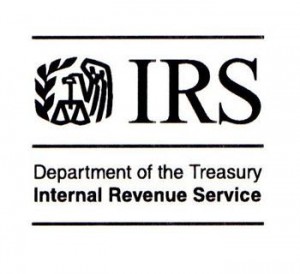 Today’s Internal Revenue Bulletin includes Announcement 2013-37, which extends the date for filing defined benefit mass submitter lead plans to the IRS from October 31, 2013 to January 31, 2014. This deadline parallels the deadline for other master and prototype defined benefit plans, and is the same as the deadline for individually designed plans that are on Cycle C (including all governmental plans) and volume submitter defined benefit plans.
Today’s Internal Revenue Bulletin includes Announcement 2013-37, which extends the date for filing defined benefit mass submitter lead plans to the IRS from October 31, 2013 to January 31, 2014. This deadline parallels the deadline for other master and prototype defined benefit plans, and is the same as the deadline for individually designed plans that are on Cycle C (including all governmental plans) and volume submitter defined benefit plans.
Category Archives: Governmental Plans
Deadline to Submit Opinion and Advisory Letter Applications for Defined Benefit Mass Submitter Plans Extended
Carol V. Calhoun Quoted in Tax Notes Article, “Unreleased Technical Advice Memoranda Illuminate IRS Position on Pension Deferral Plans”
(Posted on August 8, 2013 by Carol V. Calhoun)
The article (the full text of which is available only to Tax Notes subscribers) deals with the fact that the IRS failed to release two 2007 Technical Advice Memoranda (TAMs), which indicated that the annual contributions to a defined benefit plan under a deferred retirement option plan (“DROP“) will be treated as a contribution to a separate defined contribution plan (and thus subject to an annual additions limitation) if the contribution is credited with actual plan earnings. While this position was one we had taken in an article back in 1998, it apparently came as news to many local governments. The article also raises questions about the IRS authority to withhold release of TAMs.
Detroit’s Bankruptcy Highlights Risks, Benefits of Governmental Pensions
(Posted on July 30, 2013 by Carol V. Calhoun)
 Detroit’s bankruptcy has brought to the fore issues faced by participants in underfunded public (governmental) retirement plans. As explained in an article on CNN, “Just how generous are Detroit’s pensions?”, Detroit’s pension promises as a whole are in line with pensions provided to nongovernmental workers in the area. Nevertheless, as CNN summarizes the situation, “Detroit’s workers and retirees face big cuts.” Why are public workers so vulnerable to the financial troubles of their employers?
Detroit’s bankruptcy has brought to the fore issues faced by participants in underfunded public (governmental) retirement plans. As explained in an article on CNN, “Just how generous are Detroit’s pensions?”, Detroit’s pension promises as a whole are in line with pensions provided to nongovernmental workers in the area. Nevertheless, as CNN summarizes the situation, “Detroit’s workers and retirees face big cuts.” Why are public workers so vulnerable to the financial troubles of their employers?
IRS Issues Guidance on Patient-Centered Outcomes Research Trust Fund (“PCORI”) Fee
(Posted on July 25, 2013 by Carol V. Calhoun)
 The IRS has now issued guidance, in question and answer form, on the new Patient-Centered Outcomes Research Trust Fund (“PCORI”) Fee. The guidance confirms that the fee applies even to health plans for tax-exempt organizations or governmental entities.
The IRS has now issued guidance, in question and answer form, on the new Patient-Centered Outcomes Research Trust Fund (“PCORI”) Fee. The guidance confirms that the fee applies even to health plans for tax-exempt organizations or governmental entities.
IRS Issues Guidance on Vesting Standards to Be Followed By Governmental, Church Plans
(Posted on July 15, 2013 by Carol V. Calhoun)
 We have just obtained a copy of an internal IRS memorandum issued a little over a year ago, describing the vesting standards the IRS will apply in reviewing determination letter applications by governmental retirement plans. A copy of it can be found at this link. The memorandum states that determination letters will not be issued unless governmental plans include vesting schedules at least as favorable as safe harbors set forth in the memorandum, which appear to be intended to preclude discrimination in favor of employees who are officers, shareholders, persons whose principal duties consist in supervising the work of other employees, or highly compensated employees. And while the memorandum was primarily directed toward governmental plans, it suggested that the same standards would apply to church plans.
We have just obtained a copy of an internal IRS memorandum issued a little over a year ago, describing the vesting standards the IRS will apply in reviewing determination letter applications by governmental retirement plans. A copy of it can be found at this link. The memorandum states that determination letters will not be issued unless governmental plans include vesting schedules at least as favorable as safe harbors set forth in the memorandum, which appear to be intended to preclude discrimination in favor of employees who are officers, shareholders, persons whose principal duties consist in supervising the work of other employees, or highly compensated employees. And while the memorandum was primarily directed toward governmental plans, it suggested that the same standards would apply to church plans.
Federal District Court Blocks Michigan Law Eliminating Health Benefits for Domestic Partners of Public Employees
(Posted on July 4, 2013 by Carol V. Calhoun)
 Michigan Public Act 297 (“Act”) prohibits public employers from providing medical and other fringe benefits to any person cohabitating with a public employee unless that person is legally married to the employee, or is a legal dependent, or eligible to inherit under the State’s intestacy laws. In a June 28 decision, U.S. District Judge David Lawson (E.D. Mich.) has issued a preliminary injunction blocking enforcement of the Act based on a finding that the plaintiffs (same-sex couples of which one works for a Michigan local government) “have stated a viable claim based on the Equal Protection Clause on which they are likely to succeed.”
Michigan Public Act 297 (“Act”) prohibits public employers from providing medical and other fringe benefits to any person cohabitating with a public employee unless that person is legally married to the employee, or is a legal dependent, or eligible to inherit under the State’s intestacy laws. In a June 28 decision, U.S. District Judge David Lawson (E.D. Mich.) has issued a preliminary injunction blocking enforcement of the Act based on a finding that the plaintiffs (same-sex couples of which one works for a Michigan local government) “have stated a viable claim based on the Equal Protection Clause on which they are likely to succeed.”
District Court: QDRO Cannot Change Existing Beneficiary of Joint and Survivor Annuity
(Posted on June 11, 2013 by Carol V. Calhoun)
 It’s a plan administrator’s nightmare: John is married to Melissa, and designates her as beneficiary of his qualified joint and survivor annuity (QJSA). John and Melissa then get divorced, and the divorce decree says that John is awarded “as his sole and separate property” all rights
It’s a plan administrator’s nightmare: John is married to Melissa, and designates her as beneficiary of his qualified joint and survivor annuity (QJSA). John and Melissa then get divorced, and the divorce decree says that John is awarded “as his sole and separate property” all rights
Maryland to End Benefits For Employees’ Domestic Partners
(Posted on June 10, 2013 by Carol V. Calhoun)
The discussion does not take into account the Supreme Court’s later decision in Obergefell v. Hodges, which struck down bans on same-sex marriage. An updated look at the pros and cons of continuing domestic partner benefits can be found at this link.
The Baltimore Sun is reporting that with same-sex marriage now available, Maryland state employees in same-sex relationships have been notified that they won’t be able to include domestic partners in their health insurance as of January 1, 2014. With 11 states, the District of Columbia, and three Native American tribes having legalized same-sex marriage, employers that have domestic-partner benefits are increasingly reexamining their policies in that area.
Governmental Workers Retiring in Greater Numbers
(Posted on May 30, 2013 by Carol V. Calhoun)
 Both the federal and state governments are reporting increases in the pace of employee retirements in recent years. The causes are complex, including everything from a bulge of workers hired in the 1960s and now retiring to flattened public sector salaries and furloughs. However, in at least some instances, part of the motivation is that employees who have maxed out on their pensions may have a financial incentive to retire (or even find jobs in the private sector) in order to begin collecting retirement benefits.
Both the federal and state governments are reporting increases in the pace of employee retirements in recent years. The causes are complex, including everything from a bulge of workers hired in the 1960s and now retiring to flattened public sector salaries and furloughs. However, in at least some instances, part of the motivation is that employees who have maxed out on their pensions may have a financial incentive to retire (or even find jobs in the private sector) in order to begin collecting retirement benefits.
In some instances, the increasing pace of retirements may even be welcome. For governments facing budget shortfalls, they may result in opportunities to shrink the workforce, or at least to replace highly paid senior employees with junior employees paid at lower rates. However, in at least some instances, the surge in retirements has caused shortages in employees with much needed experience, and/or transitional issues when senior employees are not able to train more junior people before leaving.
Checklist of Federal Tax Law Rules Applicable to Public Retirement Systems Updated
(Posted on May 21, 2013 by Carol V. Calhoun)
 The Checklist of Federal Tax Law Rules Applicable to Public Retirement Systems has now been extensively updated. The chart, which identifies each of the Internal Revenue Code sections that does and does not apply to governmental plans, now includes links to each of the Internal Revenue Code sections referenced, as well as various updates to reflect recent legislative and administrative developments.
The Checklist of Federal Tax Law Rules Applicable to Public Retirement Systems has now been extensively updated. The chart, which identifies each of the Internal Revenue Code sections that does and does not apply to governmental plans, now includes links to each of the Internal Revenue Code sections referenced, as well as various updates to reflect recent legislative and administrative developments.
